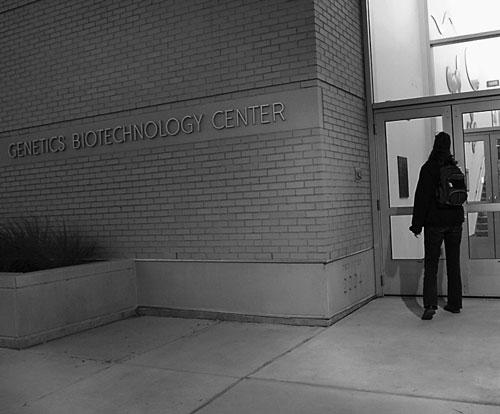A soil scientist and former adviser to Barack Obama spoke at Wednesday Nite @ The Lab about soil erosion.
Jo Handelsman, researcher and director of the Wisconsin Institute for Discovery said soil is depleting at an unsustainable rate. She said the most pressing issue now is reaching out to the public in order to spark progressive change.
Handelsman expressed disappointment about the lack of public knowledge of soil erosion.
“Education hasn’t penetrated into society, even though, in soil science, it’s common knowledge,” Handelsman said.
Handelsman said some erosion will occur naturally. Naturally-occurring erosion can be sustainable when the rate of erosion is smaller than the rate of regeneration. Man-caused erosion, however, is unsustainable, which, Handelsman said, is frightening because soil health affects many important issues such as food security, climate change mitigation, antibiotics and water purity.
Panel discusses potential for biomass to reduce carbon emissions
Scientists, Handelsman said, have devised sustainable farming practices that could decrease soil erosion rates by as much as 90%. Handelsman said farmers can move away from plowing as a simple way to protect soil architecture.
“The one thing I disagree with Thomas Jefferson about is how he said that the greatest invention of humankind was the plow,” Handelsman said.
Handelsman said designating plots of lands for perennials, instead of annual crops like corn, helps replenish the lost nutrient sources in the soil. In addition, mitigating climate change would also decrease the unusual and ever more frequent precipitation events, which would keep more soil intact.
Researchers recommend ways farmers can adapt to warming climate, increase profitability
Handelsman said education is the most important solution because without education, most people would not even be aware of the existing problem.
“I think that after being in Washington for three years, we probably can’t count on a legislative solution or a policy change,” Handelsman said. “If we can’t get policy changes to accomplish some of the things that I have described to you here, I think that, ultimately, it is up to the consumers and the public to make that happen.













